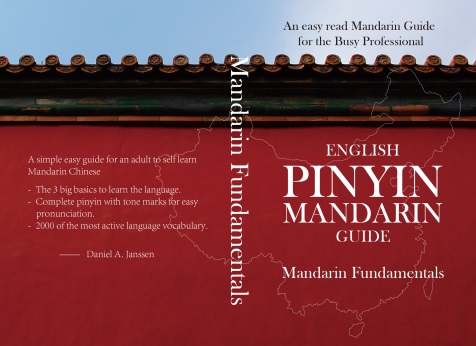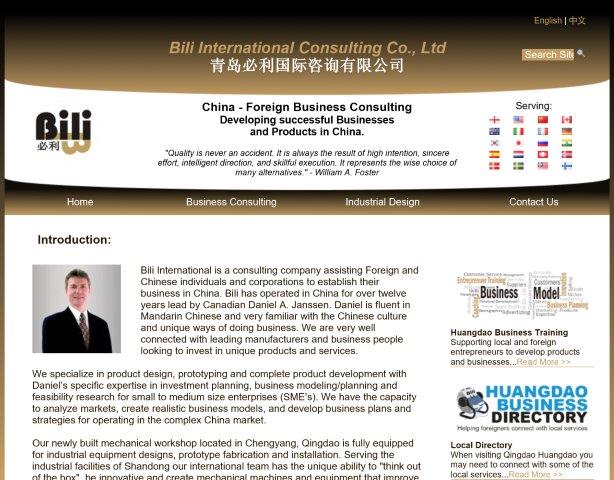MyHuangDao.com
A resource for foreigners that are living, working and or traveling from Qingdao or Huangdao, Shandong, China.

Thanks for visiting!
We are building the most comprehensive English based website to support foreigners living and working from this area. If you would like to be involved and/or cooperate in the development share your good ideas or offer products and services, please [contact us].
Serving:
English Pingyin Mandarin Guide
Introduction to Mandarin Chinese
Without taking a regular class, an adult foreigner trying to learn Chinese will have many challenges. This handbook provides a simple understanding of the fundamentals to avoid developing bad habits while equiping you with the basic words and phrases to handle normal life in China. I am a forty year-old Canadian who moved to China in 2003 looking for new opportunities and to learn a second language. After taking a couple of crash courses (Mandarin Level 1-2) from a leading language school in Vancouver, Canada, I headed to China. The training helped but I quickly found I needed help with everything, and I mean everything. To learn this language you either go to school and learn like a grade school child from the beginning or you start your self-learning process and figure it out as you go along.
Not only is this tone-based language rated as one of the hardest languages to learn in the world, but add on top of that the cultural differences and you’re in for a real journey. China has advanced considerably since 2005 and more and more Chinese are speaking English, so the need to learn the language in depth is not required for mature adults unless you’re looking at having official recognized Chinese certifications. They are the HSK tests. (Hànyǔ yǔyán shuǐ píng kǎoshì, 汉语语言水平考试) To be recognized for your level of Chinese, I suggest you go to the best language school and study like a student or take one of these many pocket books and learn the most common, active language. There are many excellent pocket books available for travelers, perfect for those picking up the language as they live and work in China. Lonely Planet has several excellent pocket books and found one invaluable during my first years. Any bookstore anywhere in the world will have various options for you.
This book was comprised of my first two-thousand words and the simplest way I could have learned it with my busy life. To simplify this complex language I broke it down to three fundamental things you need to learn:
1.The basic structure of the language (grammar)
2.Vocabulary (lexicon)
3.How to speak those words (pronunciation)
Structure:
The basic structure of the sentence is the same as English (subject – object – verb) and described in simplified form in the relevant sections.
Vocabulary:
This is just words. The 2,000 words here are most general for the average person, like myself, who got married and started a business in China. Of course the words you learn first will be directly associated with what you’re doing in China.
Pronunciation:
The Pinyin (pinyin, 拼音) system was developed in the 60s to help the Chinese pronounce Chinese characters, as the Chinese character contains no visual indication of its phonetic sound. Pinyin simply uses Roman characters with a tone mark.
Vasic Chinese Grammar
Chinese grammar is very similar to English in that the basic sentence is comprised of a subject, verb, and object. The book has an explanation of Chinese grammar is as simple as it gets, leading you to picking up the basics quickly and easily.
Grammatical Terms
The book has a full list of other grammatical terms that you may find useful in your language development.
Measure Words
English and Chinese both use ‘measure’ words to refer to quantity and to quantify uncountable nouns (e.g., a bag a sugar). Unlike English, however, Chinese uses measure words for both countable and uncountable nouns. The most common measure words used are recorded in book.
Tones: shēngdiào
There are four basic tones, plus a neutral tone, in Mandarin. Although they are important, you should not be too busy about getting them right and memorizing each tone for each word. Chinese children before attending grade school are similar to foreigners in that they do not pronounce the tones when speaking. This is something that develops later as they build vocabulary and simple sentences. My advice is to understand these tones and continually ask which are appropriate for specific words while focusing more on making sentences.
Chinese syllables are composed of consonants and vowels. Vowels consist of:
monophthongs, such as “a, o, e,”; and diphthongs, such as: “ai, ei, and ao”; and vowels plus nasal consonants such as: “an, ang”.
Vowels: yùnmǔ
Concise Dictionary translates vowels as: a) yuányīn 元音 b) yuányīn zìmǔ 元音字母
Initial Consonants: shēngmǔ
Concise Dictionary defines consonants as: a) fǔyīn 辅音 b) fǔyīn zìmǔ 辅音字母
Mandarin Consonants:
For tones, vowels, and consonants it is best to have a recording of these sounds and or have your Chinese friends sound them out for you.
Days, Months &Time
Tip on using time: In Mandarin time always follows the order of the largest time first through to the smallest. When speaking or writing it flows from year to month to day to hour.
Example writing the date: Year – Month – Day
Example when speaking: This year on February 4th at 3pm I went to school. In Chinese you would say “I 2015, Feb 4th, 3pm went to school.” (Wo 2015 nian, er yue, si hao, xiawu san dian shangke le.)
Sentence Example:
I am Canadian. (American, French, German, Chinese) This is my first time to come to China. (America, Canada, France, Germany) I came to Qingdao (Vancouver, Toronto, New York) to learn Chinese. (English, French, German) I like to learn Chinese (Mandarin). I like Qingdao very much because Qingdao is beautiful. I have a good friend who is Japanese. He also came to Qingdao to learn Chinese. Together we learn Chinese. Mandarin is very difficult we should study hard.
Wǒ shì Jiānádà rén. (Miēguó rén, Fàguó rén, Déguó rén, Zhōngguó rén) Wǒ dìyīcì lái Zhōngguó. (Mēiguó, Jiānádà, Fàguó, Déguó) Wǒ lái Qīngdǎo (Wēnggéhuá, Duōlúnduō, Niǔyuē) xué Zhōngguó huà. (Yīngwén, Fàyǔ, Déyǔ) Wǒ xǐhuān xué Zhōngguó huà (Pǔtōnghuà). Wǒ fēicháng xǐhuān Qīngdǎo yīnwèi Qīngdǎo hěn piàoliàng. Wǒ yǒu yí
ge hǎo péngyǒu, tā shì rìběn rén. Tā yě lái Qīngdǎo xuéxí Zhōngguó huà. Wǒmén yìqǐ xuě Zhōngguó huà. Pǔtōnghuà hěn nán, wǒmén yīnggāi nǔlì xuéxí.
我是加拿大人.(美国人,法国人,德国人,中国人) 我第一次来中国.(美国,加拿大,法国,德国) 我来青岛(温哥华,多伦多,纽约) 学中国话.(英文,法语,德语) 我喜欢学中国话(普通话).我非常喜欢青岛因为青岛很漂亮.我有一个朋友,他是日本人.他也来青岛学习中国话.我们一起学中国话.普通话很难,我们应该努力学习.
[Download] the full book in PDF.




